More than 11 years revealing secrets because there is no excuse for secrecy in God’s true religion – The Watchtower, June 1st 1997; Dan 2:47; Matt 10:26; Mark 4:22; Luke 12:2; Acts 4:19, 20.
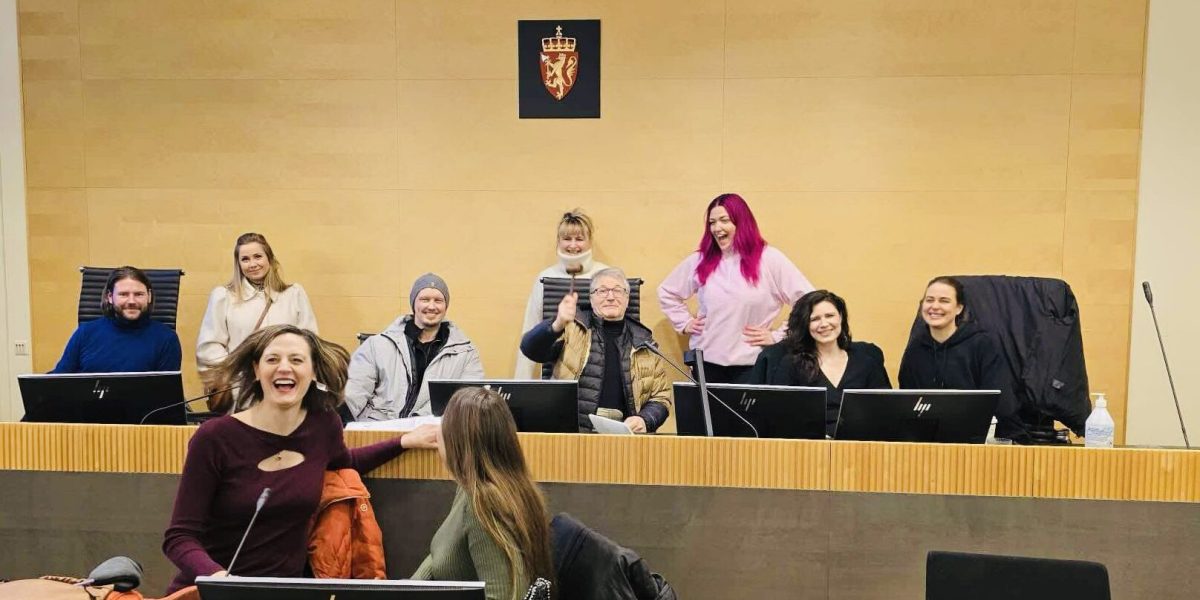
Published By: Miss Usato, Last Updated: February 10th, 2025
Oslo, Norway—This is the sixth day of Jehovah’s Witnesses’ appeal against the state of Norway. Today’s remaining witnesses are former Jehovah’s Witnesses, detailing their experiences with disfellowshipping and shunning. Over the weekend more Former Jehovah’s Witnesses met together to show their support for the ones testifying in the Appeal. We send our love and support as well! Below are some photos sent to AvoidJW.

It’s said that you’re free to join other religions, but if I had, I would have been disfellowshipped anyway. – Rakel Fjelltvedt
Rakel, a 27-year-old nurse, grew up in a Jehovah’s Witness family where everyone was involved in the faith. Her father was an elder, and their home hosted book studies. “We had two meetings and a book study every week. Participation was expected,” she explained. As a child, she had worldly friends, but over time, she was encouraged to cut them off.
At 14, she became an unbaptized publisher, and by 17, she was baptized. “Most young people in my congregation were baptized early. It was expected,” she said. However, her baptism happened under extreme circumstances—while she was hospitalized for an eating disorder. “The doctors didn’t think I was competent to consent, but they took me out of the hospital to baptize me anyway.” She felt pressure to go through with it. “If I didn’t get baptized, I would be excluded from my friend group.”
Shamed by the elders
Rakel was summoned to a judicial committee for having friends outside of the faith. Her Jehovah’s Witness friends threatened, “If you don’t report to the elders, we will.” When she did, the elders questioned her actions. “They asked if I had done enough to prevent what happened. I knew my conscience was clear, but they treated me like I was in the wrong.” She was advised to “drink less in front of worldly people” and “think about the clothes I wore.” She felt they were making her feel guilty. She eventually married and became pregnant but felt like leaving the religion before her child was born. “My maternal feelings became very strong. I realized I had to be prepared to turn my back on my child, and that would ruin our relationship from the start.” She then wanted to separate from her abusive husband, but “the elders had no understanding. They made things difficult when she was in an abusive marriage. They didn’t want me to marry, and once I did, they only wanted to meet with me if my husband was present because he was my head.” That made it nearly impossible to get help. She eventually became a single mother and a full-time student. “The father didn’t get custody.”
During COVID, she distanced herself. “I was inactive for a year. I didn’t say it out loud, but in my heart, I had a farewell with my family and friends because I knew they would distance themselves.” She set a date and sent a text to an elder to officially resign. “I didn’t believe in Jehovah’s Witnesses anymore. I believed in a more loving God with room for more than I experienced.” After leaving, she lost contact with all her JW friends. “I was part of a nationwide friend group, but none of them have reached out.” Her relationship with her parents also changed drastically. “We were a close-knit family. We traveled a lot. I used to talk to my mother every day. But now—none of that.” She sees her twin sister only by shopping at the pet store where she works. “Otherwise, we have no contact.”
Her younger brothers, who are 15, aren’t baptized but still follow the rules. “They were young when I left but were raised in the same system.” Rakel struggles to understand why she’s shunned. “I still have values similar to those of Jehovah’s Witnesses. So why can’t we have contact?”
Her mother texts her once or twice a month. “She says she loves me and my son and thinks about us daily, and I believe her.” But her parents wanted her to “gradually leave” so they could maintain some contact. “It’s said that you’re free to join other religions, but if I had, I would have been disfellowshipped anyway.”
The Traumatic Aftermath
Rakel was admitted to the hospital for self-harm and anorexia while she was a Jehovah’s Witness. “Not after.” She became inactive, and the elders reached out, which she saw as an attempt to bring her back. Ryssdal downplayed her experiences as mere “discomfort.” But Rakel was clear: “I resigned because I was against the disfellowshipping policy. It was my initiative, but I knew withdrawing meant I would be disfellowshipped.”
Rakel believes she would have gone back if not for her non-JW friends, who became like family. “It was too tough to stand alone.” Ryssdal suggested she has new friends now, but Rakel pushed back. “It’s not the same. I started from scratch because I had zero worldly friends after middle school.”
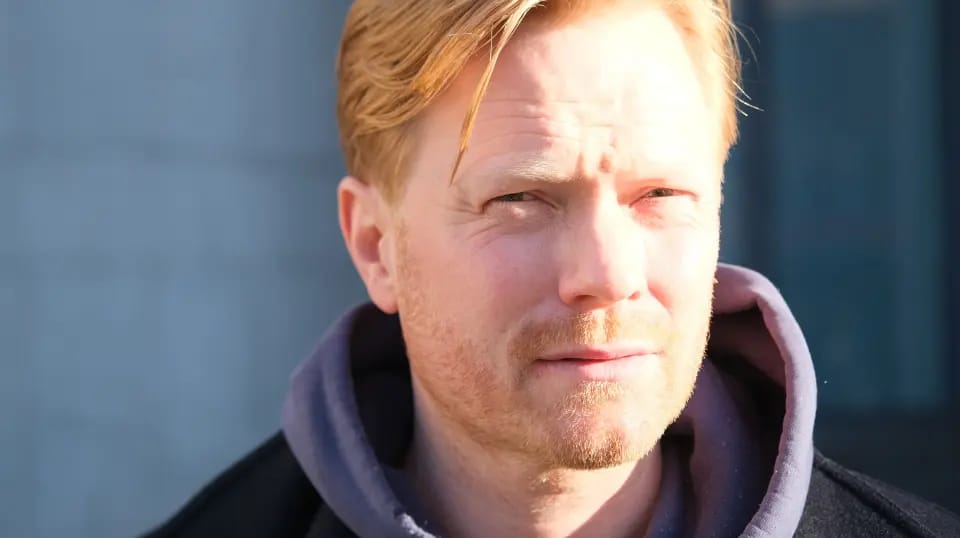
I had the choice between suicide and leaving Jehovah’s Witnesses. – Leander Djønne
Leander Djonne, 43, from Odda, was born into a deeply entrenched Jehovah’s Witness family. With both sides of his family in the religion since the 1960s, he had no contact with his only “worldly” relative-his grandfather. His older brother remains a Jehovah’s Witness with his family.
Leander described the exhausting routine of JW life: daily meetings, field service, preparations, and study. There was no free time, and friendships with non-JWs were only allowed for preaching purposes.
At 16, just 1 1/2 years after baptism, he realized he was trapped. He started becoming skeptical when friends were summoned before Jehovah’s Witnesses’ “Judicial Committee.” He was forced to describe in detail to four or five elder brothers how they engaged in oral sex and other intimate acts. Combined with the social control he experienced, he developed serious mental health issues.
“I wanted to end my life at 16, but fortunately, I started at a folk high school when I was 17. That saved me.” Feeling hopeless, he considered suicide, believing that leaving the religion or dying would both result in losing everything. His family, preoccupied with caring for a disabled sibling, never received help from the congregation, leaving a lasting impression on him. A scripture led him to question the elders, but instead of answers, he was scorned.
He tried to separate himself from the organization, but the elders persistently visited him for six months. Desperate to stop it, he wrote letters demanding they leave him alone. His family, though, preferred to distance themselves. Once, when he tried to visit family in his hometown, his parents, grandparents, siblings, uncles, and aunts all left in a boat to avoid meeting him. “It was absolutely absurd,” he said about the experience. After moving to a folk high school for an arts program, he stopped submitting field service reports, signaling to the congregation that he was drifting away. The elders continued visiting him, trying to bring him back. Eventually, he moved to Oslo to escape the harassment, believing they would have never stopped if he had stayed in Odda.
He emphasizes that there is no difference between those who resign and those who are disfellowshipped, ostracized, and dehumanized.
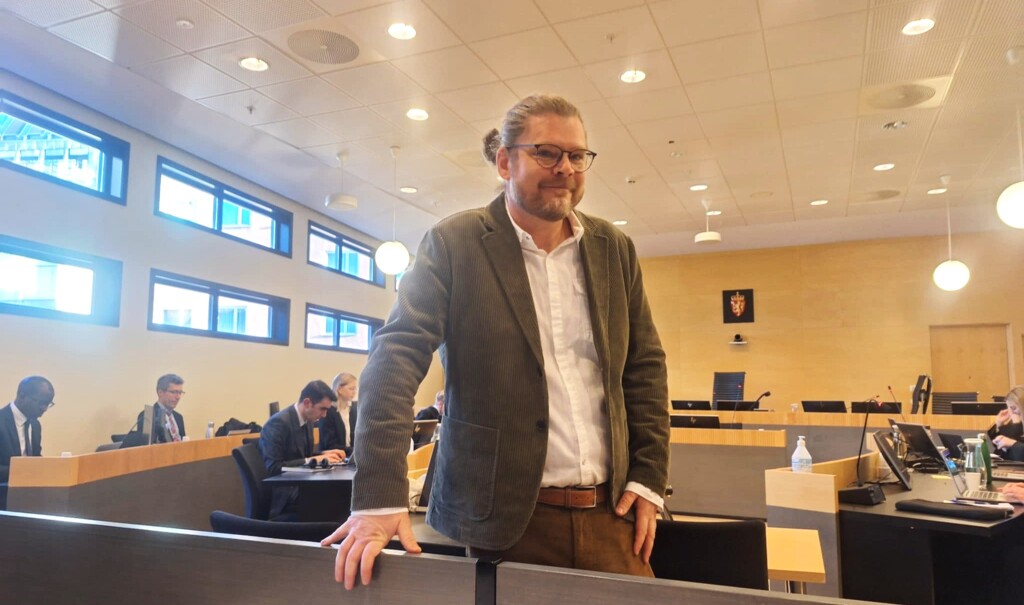
Being Disfellowshipped -not personal relationships, is the root cause of my suffering. -Jan Frode Nilsen
Jan Frode Nilsen, 47, grew up in a Jehovah’s Witness family, with his parents and siblings practicing the faith, though no extended relatives were involved. His childhood was dominated by religious activities—attending meetings, studying, and engaging in field ministry. He had no time for sports or other extracurriculars. His social interactions were strictly limited to fellow Witnesses, making him increasingly isolated as he grew older.
At 12 or 13, he became an unbaptized publisher, adhering to rigid rules. He recalled that disfellowshipping was an accepted part of life; losing friends to disfellowshipping was familiar but not something he dwelled on until it became personal. Judicial committees were taught as part of regular instruction, yet they seemed distant until he was directly affected.
At 17, Jan was baptized and became highly active in the faith, serving as an auxiliary pioneer. However, at 20, he faced a crisis, leading to depression. He married at 23 and had three children, which made him question his faith. He struggled with the idea of indoctrinating his children and found it morally wrong. His last Kingdom Hall meeting was in 2012 or 2013 when his youngest child was two. He told his wife he would never return. Though he remained inactive for years, he followed the rules to avoid repercussions. In 2012, at 34 years old, he participated in a judicial committee, which he found shocking. He expected a compassionate discussion but instead encountered a rigid, rule-driven process. He lacked access to procedural materials like the Shepherd the Flock book, leaving him unprepared for what he experienced.
Struggles with Leaving and Mental Health
Jan attempted to distance himself quietly, hoping to maintain a connection between his children and their JW family. However, the stress of this balancing act severely impacted his health. He fell seriously ill, requiring hospitalization and three years of intensive therapy. He received no support from the JW community, which treated his struggles with indifference.
The final break came in 2019 when he publicly spoke out against the JW organization. Initially, he remained anonymous, behind the name “Fredrik,” but when he revealed his identity, he was labeled an apostate and wholly shunned. In an interview with Vårt Land, he discussed the organization’s stance on voting, showing that he had never participated in elections due to the faith’s strict rules. His mother responded to his public revelation with a text: “I cannot and will not have contact with an apostate.” His entire family cut ties.
Disfellowshipping and Consequences
In January 2020, two JW elders confronted him at his home. They asked him to attend a judicial committee as he was about to take his dog for a walk. He refused. They then asked if he still identified as a Jehovah’s Witness. The following day, his disfellowshipping was officially announced.
He expressed sadness over his parents’ rejection, believing they view him as a “useless son.” He never intended to hurt them and hoped for some level of contact. Since 2019, he has spoken to his mother only once. His father called him once, two years ago, after his grandmother’s passing. He was invited to the funeral but felt unable to attend. When he finally saw his mother in 2022 or 2023, she clung to him, expressing deep sorrow and telling him she thought about him daily. However, despite their love, they continue to follow JW doctrine and maintain distance.
Becoming a Whistleblower
Jan Frode emphasized that his decision to speak out was not about opposing JW beliefs but exposing organizational misconduct. He noted that Jehovah’s Witnesses frequently misrepresent their policies in the media, prompting him to correct misinformation. “What does the literature say about this?” was a phrase he heard constantly growing up—rules always precede personal judgment.
He recounted a case where parents stepped down as elders and pioneers simply because their child was disfellowshipped, illustrating the severe social consequences of maintaining contact with former members. JW doctrine dictates that only “necessary contact”—such as during funerals or severe illness—is permissible. Since leaving, Jan Frode has faced increased scrutiny from the JW organization. He explained that those who quietly leave may still receive polite acknowledgment on the street, but those who speak out, like him, are met with hostility. He became a local politician, channeling his energy into advocacy and community service. He believes his treatment has been harsher because he refuses to stay silent.
Watchtower Lawyer Ryssdal attempted to link Jan’s mental health struggles to his divorce, an argument he strongly refuted. “Being Disfellowshipped -not personal relationships, is the root cause of my suffering.” He goes into how he required years of therapy to recover from the institutionalized mentality imposed by the JW organization. In 2018, he was referenced anonymously as “Fredrik” in an article about Jehovah’s Witnesses. When Russia cited this article, it reinforced his fear that his children might grow up, get baptized, and be forced to shun him in the future.
This is Jan Nilsens third time testifying against the Jehovah’s Witness Organization. As before, his testimony highlights the emotional and psychological toll of being raised in a high-control religious environment. His story exemplifies the consequences of disfellowshipping and the struggles of those who leave the faith, particularly when they choose to challenge its practices publicly.
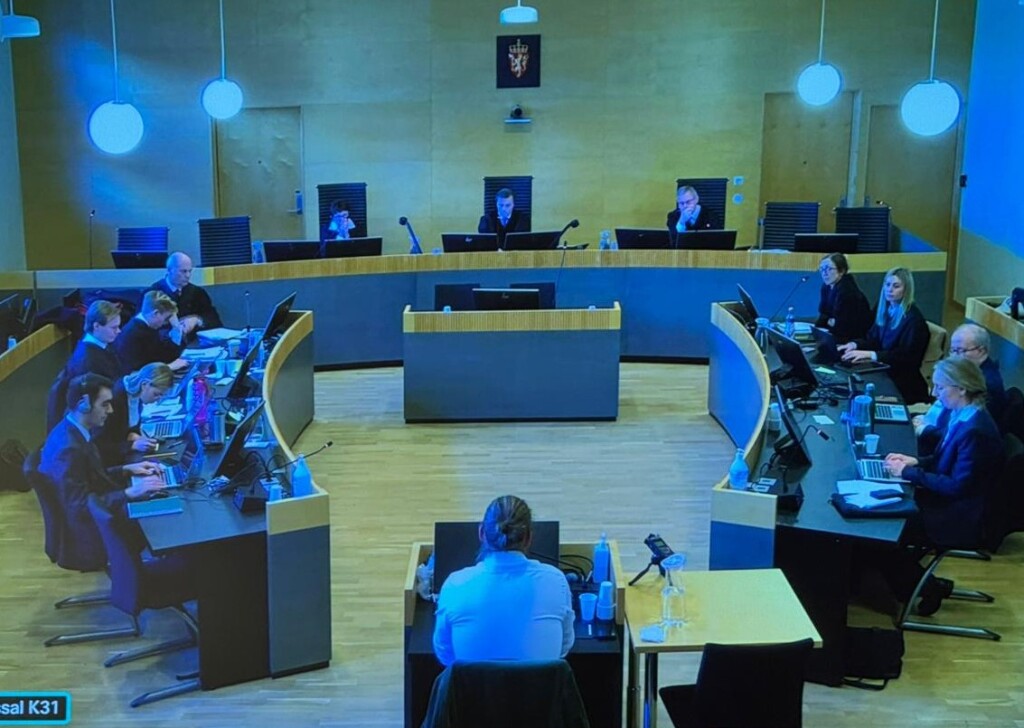
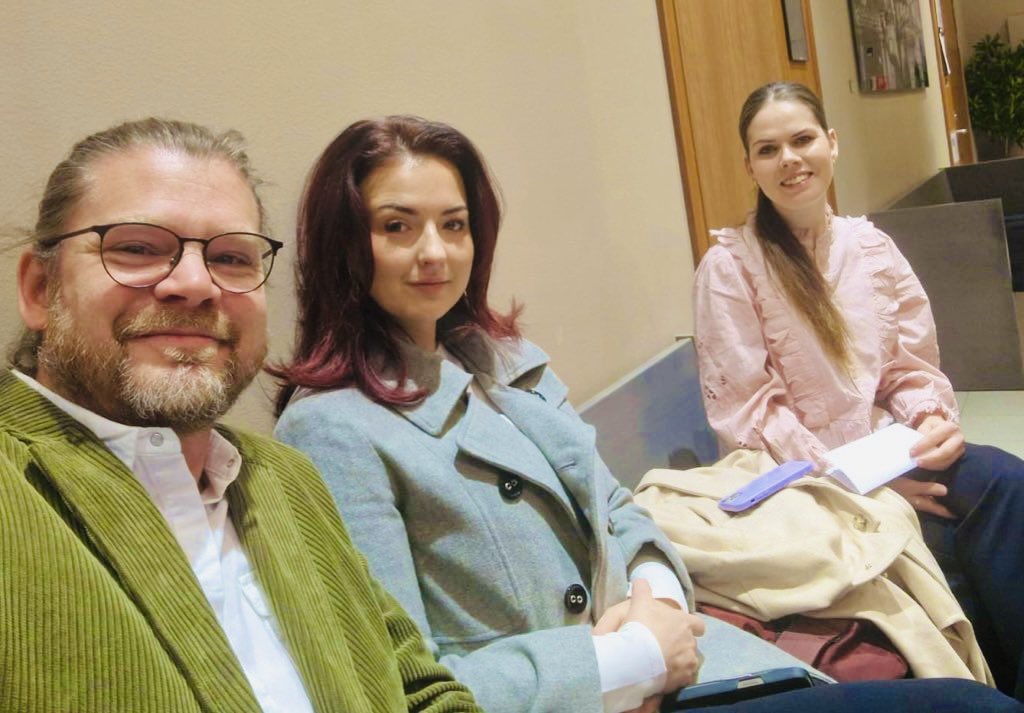
I haven’t had normal contact with my parents or former friends in the faith since leaving. -Noomi
Noomi, 28, grew up in northern Sweden in a Jehovah’s Witness (JW) household. Her parents were devout members, and most of her family belonged to the faith. She had two older brothers, one 18 and another four years older. Her childhood was structured strictly around religious obligations—three weekly meetings, daily Bible readings, and complete social isolation from non-witnesses. She attended a congregation of approximately 100 members and could only interact with fellow Jehovah’s Witnesses.
At ten years old, Rakel became an unbaptized publisher, a significant step in the faith. By thirteen, she underwent baptism, a decision she felt pressured into making. She described it as “a sheep hunted by a dog into a fence,” implying she had no choice but to comply. “I felt like I wouldn’t be socially accepted among friends If I didn’t.” She then suffered from death anxiety, fearing that not getting baptized would lead to her perishing.
The Trauma of disfellowshipping
When Noomi’s older brother, at 17, got a girlfriend and was disfellowshipped, it marked a traumatic period in her life. She developed anxiety, and the family dynamic drastically changed. “He became a stranger living in the house,” she testified. As he was shunned, he eventually moved in with his girlfriend. Despite feeling afraid of him, Noomi believed she was doing the right thing by severing ties. She had been taught that “worldly people” (non-Jehovah’s Witnesses) were under demonic influence, reinforcing her belief that distancing herself was an act of spiritual obedience.
Between 16 and 17, Noomi moved to Fauske, northern Norway, where her parents had relocated to support a smaller congregation, which was seen as a noble duty within the faith. However, she found it increasingly difficult to conform to the strict religious lifestyle. Eventually, she became romantically involved with someone leading a “double life”—not considered a good Jehovah’s Witness example. When it was reported that they had been alone together, she was summoned by the elders. She recounted being terrified, knowing she risked disfellowshipping. During the meeting, she confessed everything and expressed deep remorse. Instead of immediate expulsion, she was publicly reproved, and then an announcement in the congregation was made that she had been disfellowshipped.
At 18, Noomi could no longer maintain the lifestyle she had enjoyed as a witness. The elders visited her home unannounced, informing her that she had been disfellowshipped. She recalled feeling overwhelming despair, knowing she was about to lose everything. “My mother and I were just in tears,” she said. I knew I would lose everyone I cared about.”
She moved in with a new boyfriend but lacked a support system. The relationship was abusive, and she found herself moving from one unstable situation to another to have a place to live. At 17, she had already sought help from child services due to her father’s physical and mental abuse, but she felt they did not understand her situation and failed to assist. After her disfellowshipping, the JW community treated her as if she were dead. She described how no one reached out, leaving her isolated and vulnerable.
The Organization’s doctrine discourages higher education, leaving Noomi disadvantaged after leaving the faith. She struggled to rebuild her life, dealing with PTSD and years of hardship before finally receiving psychiatric help. She worked hard to return to school and eventually pursued an education.
Family Estrangement and her Current Situation
It has been 11 years since Noomi last had meaningful contact with her family. The relationship remains cold and distant. The only interactions have occurred in emergencies, such as when she was hospitalized. Her parents have no relationship with their grandchildren.
When asked why she does not allow her parents to have contact with their grandchildren, she stated, “I want my kids to have free will and unconditional love.” She expressed that by maintaining this distance, she is protecting them from an unhealthy relationship similar to what she experienced. During the testimony, discrepancies arose regarding her baptism age. The prosecution- Ryssdal presented information suggesting she was 16 rather than 13 at baptism. Noomi maintained that this was a mistake. The prosecution also stated that she was disfellowshipped after “three strikes.” They questioned whether she knew the rules prohibiting men and women from being alone together. She acknowledged that she knew but struggled to adhere to the strict regulations. Regarding whether her parents had ever taken care of her children, she confirmed that they had babysat one grandchild once when she gave birth to her second child, but otherwise, they were not involved.
When asked if recent changes in the organization’s rules had affected her situation, she responded, “No, nobody is calling me, and nothing has changed in my family situation.” Despite policy updates, she remains estranged from her family, and their relationship has not improved.
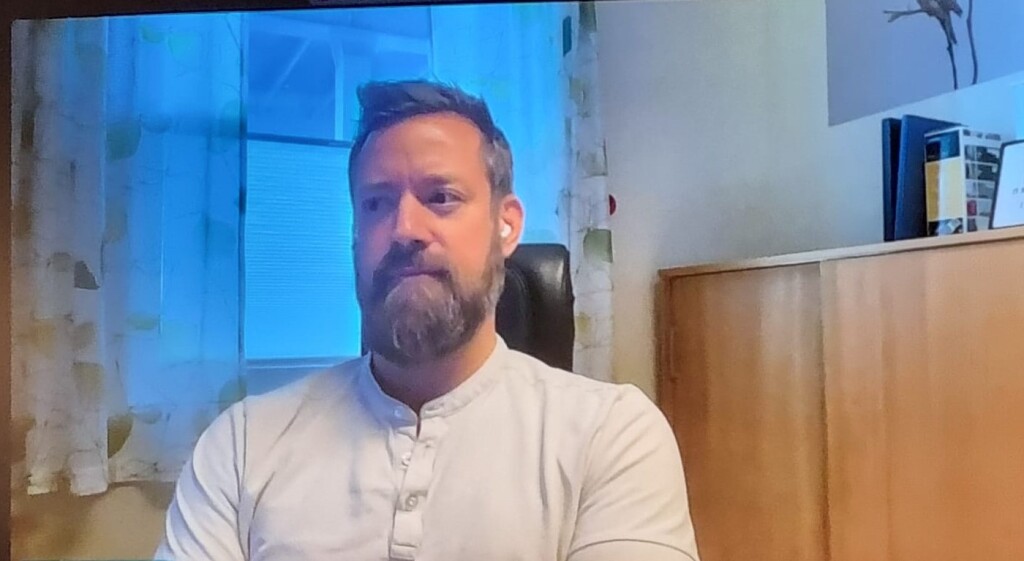
You never know how people will react, and we had to determine if someone was truly remorseful—sometimes ruining a person’s life by disfellowshipping them. -Tony Zane
Tony Zane, 40, from Bergen, Norway, grew up in a strict and conservative Jehovah’s Witness (JW) family, surrounded by parents, grandparents, aunts, uncles, and a sister who was disfellowshipped in her early 20s.
He described his childhood as fully immersed in JW activities, with no room for extracurriculars. “A normal week was full of meetings, field service, and other religious duties,” he testified. He briefly tried football but was forced to quit when his father disapproved. At 12, he became an unbaptized publisher, taking on more responsibilities like reporting field service. The pressure to get baptized intensified, and at 16, he did so, partly because he believed it would allow him to “pet the tigers in paradise.”
From a young age, he feared punishment from God: “Nothing could make me be sinful because I feared that God would kill me if I did not obey.” He also believed that without baptism, he wouldn’t be saved during Armageddon.
Confrontation with the elders
Around 16-17, the elders summoned him to confess a wrongdoing. His parents were informed, and he found the process “shameful and embarrassing.” Although he wasn’t disfellowshipped, he recalled the overwhelming fear of losing everything: “That first meeting still haunts me today—it was terrifying.” He later moved from Bergen to Grimstad, got married young (as is common among people in the faith), and lived there for 18 years. Rising in the ranks, he became an elder and a circuit overseer, someone Jehovah’s Witnesses deeply trust. However, he dreaded judicial committees, saying, “You never know how people will react, and we had to determine if someone was truly remorseful—sometimes ruining a person’s life by disfellowshipping them.” He confirmed that the rules of this organization apply equally to minors and adults, recounting an instance where two children who got drunk had their punishment announced publicly. “One of them wasn’t even baptized, but he still faced ridicule,” he said.
Over time, he grew critical of the teachings, feeling that much of the literature was “propaganda.” He witnessed physical and mental abuse and sensed a lack of love within the congregation. “There was so much judgment and backstabbing—I couldn’t stand by it anymore.”
By 2007, he started questioning the organization’s doctrine, but fear of consequences kept him inside until 2024. “Jehovah’s Witnesses don’t like critical thinking,” he stated. He eventually stepped down as an elder, requested the removal of his data, and left his congregation in Hamar.
Despite not being officially disfellowshipped, he has been treated as such. “Nobody reached out to me. I lost everything.” His attempts to reconnect with “PIMO” (physically in, mentally out) friends were unsuccessful.
The consequences of leaving
His departure had devastating personal costs. His 15-year-old daughter, who was recently baptized, cut all contact. “I last spoke to her in April last year. I send texts, but she never answers.” He even needed police intervention to stop elders from harassing him.
When asked about JW’s supposed new, more lenient policies, he dismissed them: “It’s like putting makeup on a pig—nothing has really changed.”
Despite having legal custody, he struggles to see his daughter because she refuses contact. “Jehovah’s Witnesses believe they are entitled to do whatever they want, thanks to the governing body,” he stated.
He is trying to rebuild his life, but the scars remain. “I lost everything—even though I was never officially disfellowshipped.”
Based on the testimonies shared today, a clear and painful pattern emerges—one of control, fear, and profound personal loss. These stories are isolated experiences and part of a larger reality for those who leave Jehovah’s Witnesses. The common threads of childhood indoctrination, the pressure to conform, and the devastating consequences of questioning or leaving the faith highlight a system that prioritizes obedience over individual well-being.
Many have spoken about the trauma of judicial committees, the fear of being disfellowshipped, and the emotional toll of being cut off from family and friends. One witness described the terrifying moment of facing elders, feeling like his entire life could be taken from him in an instant. Another shared how he was treated as if he no longer existed even without official disfellowshipping. Parents have lost children, and children have lost parents—not because of wrongdoing but because of a rigid belief system that discourages critical thinking and enforces absolute loyalty.
Yet, despite the pain, there is also resilience. Those who have spoken out today have shown immense courage in breaking the silence. Their testimonies serve as a powerful reminder that the right to question, to think freely, and to choose one’s own path should never come at the cost of losing everything.
To those still trapped in fear, to those struggling with doubt, and to those who have lost loved ones to this system—know that you are not alone. There is life beyond control, there is healing beyond loss, and there is hope beyond the walls that once confined you.
Elders’ Book: Download a Copy in your language
JW Publication: Keep Yourselves in God’s Love
DAGEN February 10th, 2025: Former Jehovah’s Witness in court: – I was caught between suicide and leaving
Office of the Attorney General, representing the State of Norway
Glittertind AS Law Firm representing Jehovah’s Witnesses
Reporter
Translator
Analysis